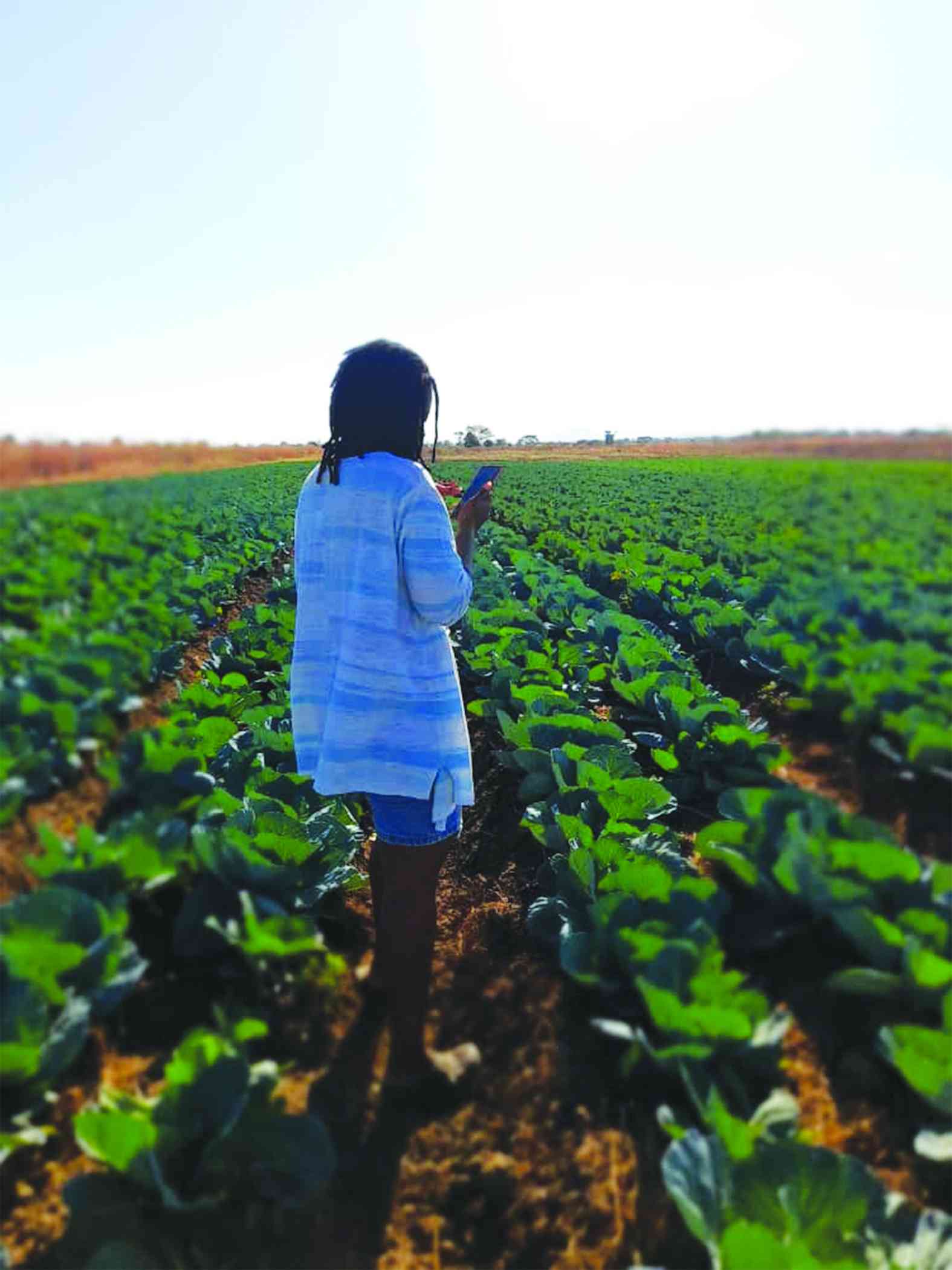
A CHILLY wind blasts her face, driving tears from the corners of her eyes, as she braves the harsh wintry morning.
Her fingers are numb from the cold.
This year’s winter season has been unusually brutal.
As she trudges through the unforgiving weather, a garden fork dangles in her hand.
Despite the harsh weather conditions, she has no option but to simply press on with farming, a career she chose to earn a living.
Such is the life of 26-year-old Praise Musvosvi, who makes use of two farming spaces in Concession and Mvurwi, which is over 100km north of the capital Harare.
Musvosvi, a holder of a diploma in Agriculture from Blackfordby College and an Agribusiness Management degree from Africa University, is passionate about farming.
“As I grew older, my interest in farming got deeper and deeper. I started to appreciate the hard work and dedication that went into producing the food that ended up on our tables, that’s when I decided to pursue a diploma in Agriculture with Blackfordby College,” she says.
- Cabbage farming, cultivating a sense of stewardship
Keep Reading
“I furthered my education and graduated with a degree in Agribusiness Management from Africa University because I realised that farming wasn’t just a job, but a way of life that required a connection to the land, a sense of responsibility and a passion for nurturing life.
“Having grown up in a family that is into agriculture and nurtured a strong passion for the field, I am driven to contribute meaningfully to ensuring global food sustainability.
“My background in agriculture has not only equipped me with practical skills, but also instilled in me a profound appreciation for the critical role agriculture plays in feeding our communities and shaping our world’s future.”
Musvosvi, an agribusiness consultant and horticulture farmer who has three demo plots of cabbages, is expecting a bumper harvest, which she hopes will change her life for the better and help to market her programme.
“The cabbages I have so far are just demo plots for my consultations and I currently have three of them, each with 1 000 heads of cabbage,” she explains.
“For me, the idea of farming is not just about growing food, but about cultivating a sense of community, stewardship and respect for the natural world. It’s a way of life that I’m proud to be a part of and one that I hope to continue to learn from and contribute to for years to come.”
Musvosvi plants short-season, pest and disease resistant varieties in order to maximise on yields.
“I chose to grow Kilimo cabbages as the variety is resistant to problematic diseases. It’s an early maturing variety. It produces large heads and the whole field does not mature at the same time,” she says.
“But soon, I will consider a new variety called Kiwa because it matures early [it takes 65 days] and the cut percentage is very high. I am already considering it as one of the best at the moment.”
Despite the country’s harsh economic conditions, whereby more than 90% of employable people are not formally employed and living on less than US$1 per day, Musvosvi is doing exceptionally well.
“I actually am pioneering an agriconsultancy movement, providing expert guidance and support to numerous farmers both online and onsite, empowering them to improve their farming practices and productivity.
“I am also scaling up my broiler project from a modest 100 birds per cycle to an impressive 1 000 birds per cycle, significantly increasing my production capacity and revenue.
“These accomplishments demonstrate my drive, innovation and commitment to excellence in agriculture and I’m proud to be making a positive impact in the industry,” she says with a smile.
Although Musvosvi’s business is flourishing, she faced some challenges that are affecting its growth.
“My major drawback right now is capital for expansion and drilling a solar-powered borehole that enables me to carry out my duties efficiently. If I get these, I’ll be able to expand smoothly.”
Musvosvi envisions herself in the next five to 10 years as a successful and sustainable farmer, dedicated to producing high-quality food while preserving the natural resources at her farms.
Ultimately, she sees herself as a leader in the agricultural industry, “making a positive impact on the environment, my community and the world at large”.
“I intend to expand my farm to include a diverse range of crops and livestock, using regenerative practices that enhance soil health and biodiversity,” she says.
“Developing a thriving agritourism programme, sharing my passion for farming with others and educating them about the importance of sustainable agriculture, I will build a strong community of like-minded farmers, collaborating on best practices and supporting each other in our journey towards sustainable agriculture.”
Adds Musvosvi: “I will be continuously learning and innovating, staying up-to-date with the latest research and technologies to improve my farming practice. Mentoring and inspiring the next generation of farmers, particularly women and underrepresented groups, to pursue careers in agriculture.
“(I will also be) advocating for policies and programmes that support sustainable agriculture and promotes food security, locally and globally (as well as) growing my farm into a thriving business, creating jobs and contributing to the local economy.”









